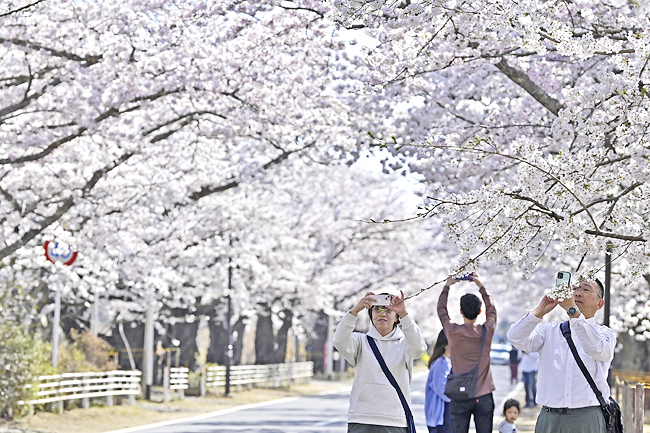TOKYO (AP) – Evacuation orders were lifted in small sections of Tomioka, a town just southwest of the wrecked Fukushima nuclear power plant, yesterday, in time for the area’s popular cherry blossom season and Prime Minister Fumio Kishida joined a ceremony there to mark the re-opening.
The area of about four square kilometres where entry restrictions were lifted is part of Tomioka town, most of which had already been re-opened. Former residents and visitors celebrated the latest re-opening as they strolled along a street known as “the cherry blossoms tunnel”.
“The lifting of the evacuation is by no means a final goal, but the start of the recovery,” Kishida said at the ceremony, pledging to keep working to lift all no-go zones.
An earthquake and tsunami in March 2011 triggered triple meltdowns at the Fukushima Daiichi nuclear power plant. Massive amounts of radiation spewed from the plant, causing more than 160,000 residents to evacuate from across Fukushima, including about 30,000 who are still unable to return home.
Tomioka is one of 12 nearby towns fully or partially designated as no-go zones. The two sections in Tomioka that re-opened for the first time in 12 years represent one-fifth of the worst-hit no-go zone and were selected by the government along with several other locations in the region for intensive decontamination. But jobs, daily necessities and infrastructure remain insufficient, making it difficult for younger people to return, and families with small children worry about possible radiation effects.
“The living environment and many other things still need to be sorted out,” Tomioka Mayor Ikuo Yamamoto told reporters.
In the newly re-opened Yonomori and Osuge districts of Tomioka, just over 50 of about 2,500 registered residents have reportedly returned or expressed intention to go back to live. Only about 10 per cent of the town’s pre-disaster population of 16,000 have returned since large areas of Tomioka re-opened in 2017.
Town surveys show a majority of former residents said they have decided not to return because they have already found jobs and educations and built relationships elsewhere.






